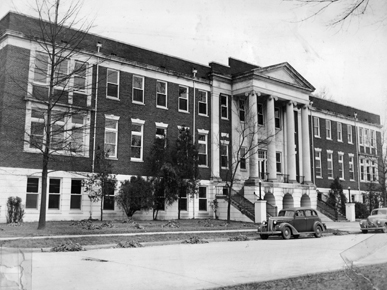 Associate Professors Dr. John Giggie and Dr. James Mixson co-authored an opinion piece for al.com that explores the significance of building names, the legacies those names carry, and what they say about our often flawed understanding of the past.
Associate Professors Dr. John Giggie and Dr. James Mixson co-authored an opinion piece for al.com that explores the significance of building names, the legacies those names carry, and what they say about our often flawed understanding of the past.
“When W.E.B. Dubois, the great Black intellectual and co-founder of the National Association for the Advancement of Colored People, surveyed the southern frenzy to memorialize the Confederacy in the late 1920s, he shook his head in disbelief. He feared the power of public monuments, festivals, and building names to obscure the tragedy of recent American history. Focusing on the most popular namesake, Gen. Robert E. Lee, Du Bois begged white Americans to see what the Virginian actually fought for. “Either he knew what slavery meant when he helped maim and murder thousands in its defense, or he did not. If he did not he was a fool. If he did, Robert Lee was a traitor and a rebel–not indeed to his country, but to humanity and humanity’s God.”
“We teach and live in Tuscaloosa, which like so many other southern towns is now grappling with the divisive contest over history and memory that Dubois first recognized. More than ever, we are asking unsettling questions about the truth of stories passed down by earlier generations and how those stories became embedded in our public culture. We are confronting in particular how our buildings and monuments project an understanding of the past that is at odds with our aspirations to live in a democratic society that carefully honors its citizens.”